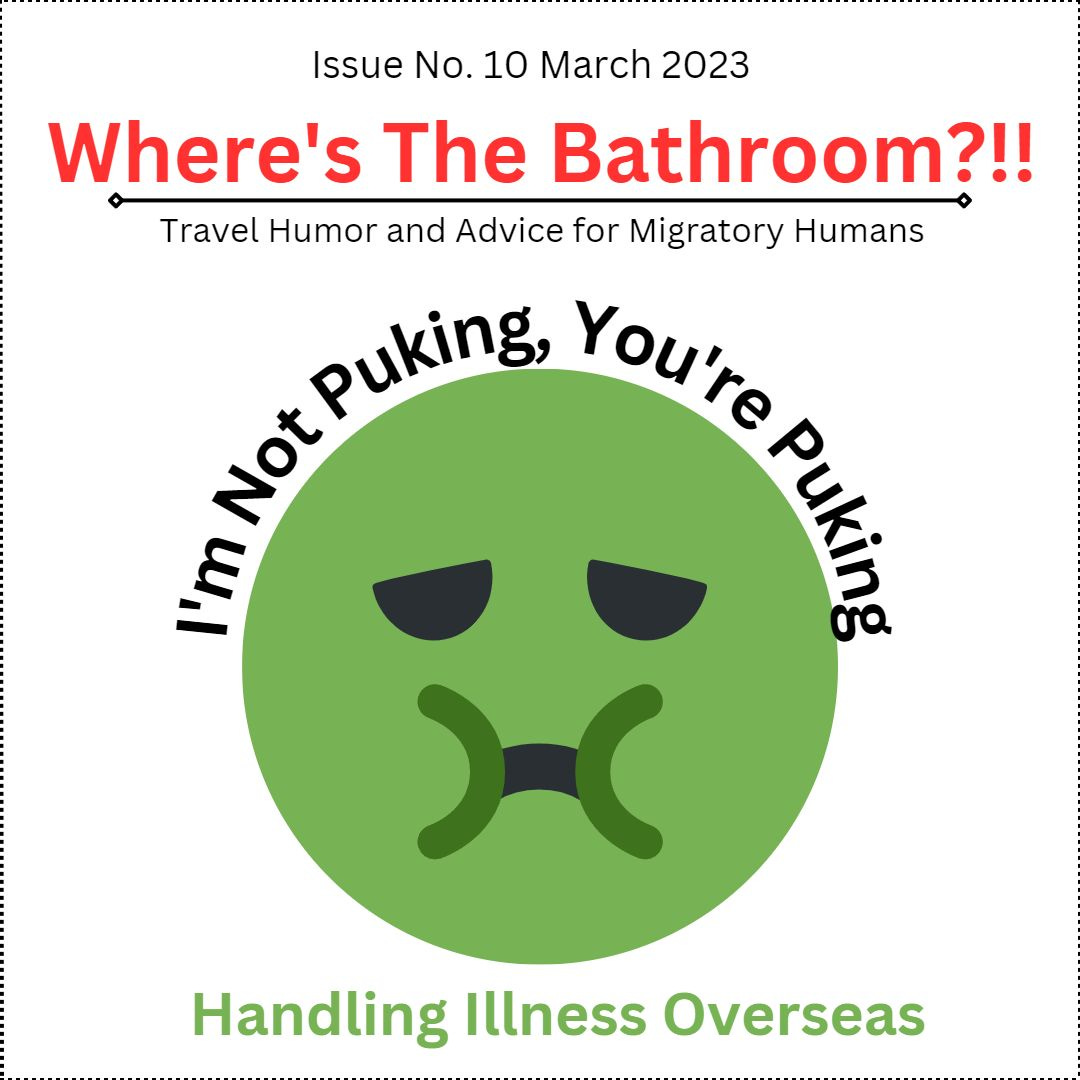No. 10 I'm Not Puking, You're Puking: How to Handle Illness Overseas
Maldives, China, Paris
Keep reading with a 7-day free trial
Subscribe to Pole to Pole Travel with E.O. Connors to keep reading this post and get 7 days of free access to the full post archives.





